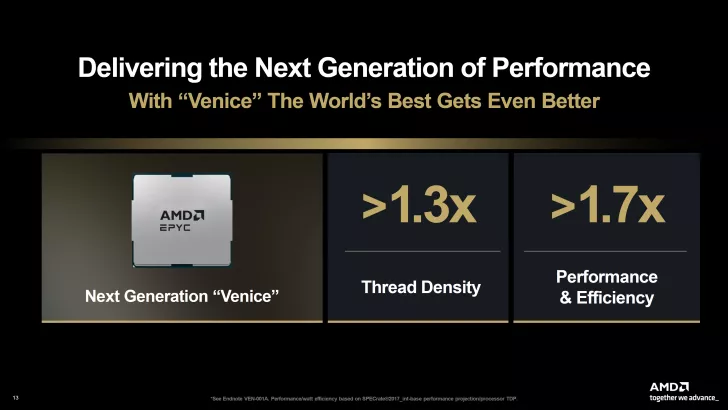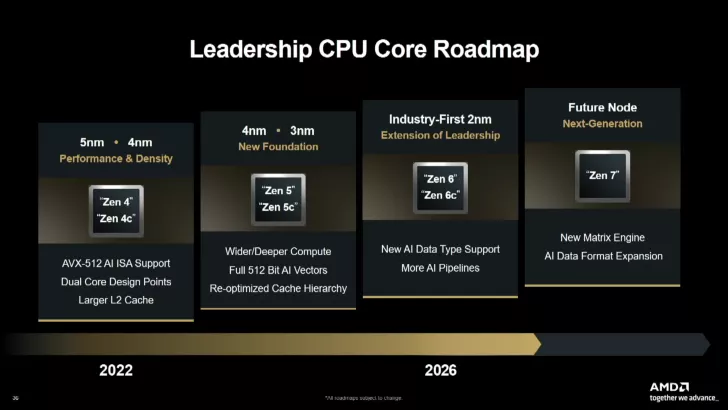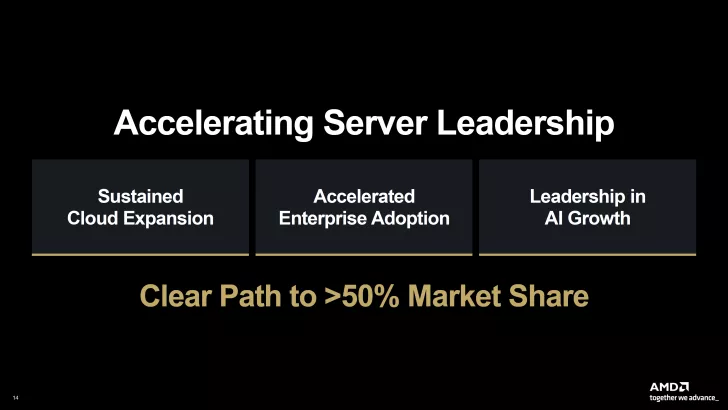AMD Zen 6 “EPYC Venice” CPUs Boast 70% Boost in Performance and Efficiency, 30% More Thread Density
AMD is setting the stage for a significant leap in CPU technology with its upcoming Zen 6 architecture, promising substantial advancements in both performance and efficiency. The highly anticipated EPYC Venice lineup is expected to lead these advancements, offering unprecedented capabilities within the server market. Recent updates from AMD’s Financial Analyst Day have provided exciting insights into what’s to come.
Major Performance Boosts with Zen 6 CPUs
During its latest presentation, AMD unveiled an ambitious roadmap for its Zen 6-powered EPYC Venice CPUs. These processors are slated to deliver more than a 70% improvement in performance and efficiency compared to current offerings. This remarkable enhancement demonstrates the potential of the Zen 6 architecture, particularly in the server domain. Additionally, the CPUs will enhance thread density by over 30%, underscoring AMD’s commitment to pushing the boundaries of processing power.
 Image Source: AMD
Image Source: AMDTechnological Advancements and Architecture
AMD’s EPYC Venice “Zen 6” CPUs will be equipped with up to 256 cores and 512 threads, marking a 33.3% increase from the current Turin lineup. These processors will utilize the latest 2nm process technology from TSMC, which will also apply to desktop and laptop processors like Olympic Ridge and Medusa/Gator. The new process technology will feature Nanosheet transistors, providing 10-15% higher performance at the same power and up to 15% higher transistor density, while reducing power consumption.

Contrary to what one might assume, AMD’s impressive performance figures are not based on AI performance assessments. The company clarifies that the numbers come from SPECrate 2017 INT tests conducted on a two-processor platform with EPYC Venice Zen 6 CPUs, compared to a similar setup with EPYC Turin Zen 5 CPUs. AMD’s EPYC Venice lineup will achieve over 70% improvement in performance and efficiency, solidifying its position as a game-changer in the server CPU market.
 Image Source: AMD
Image Source: AMD